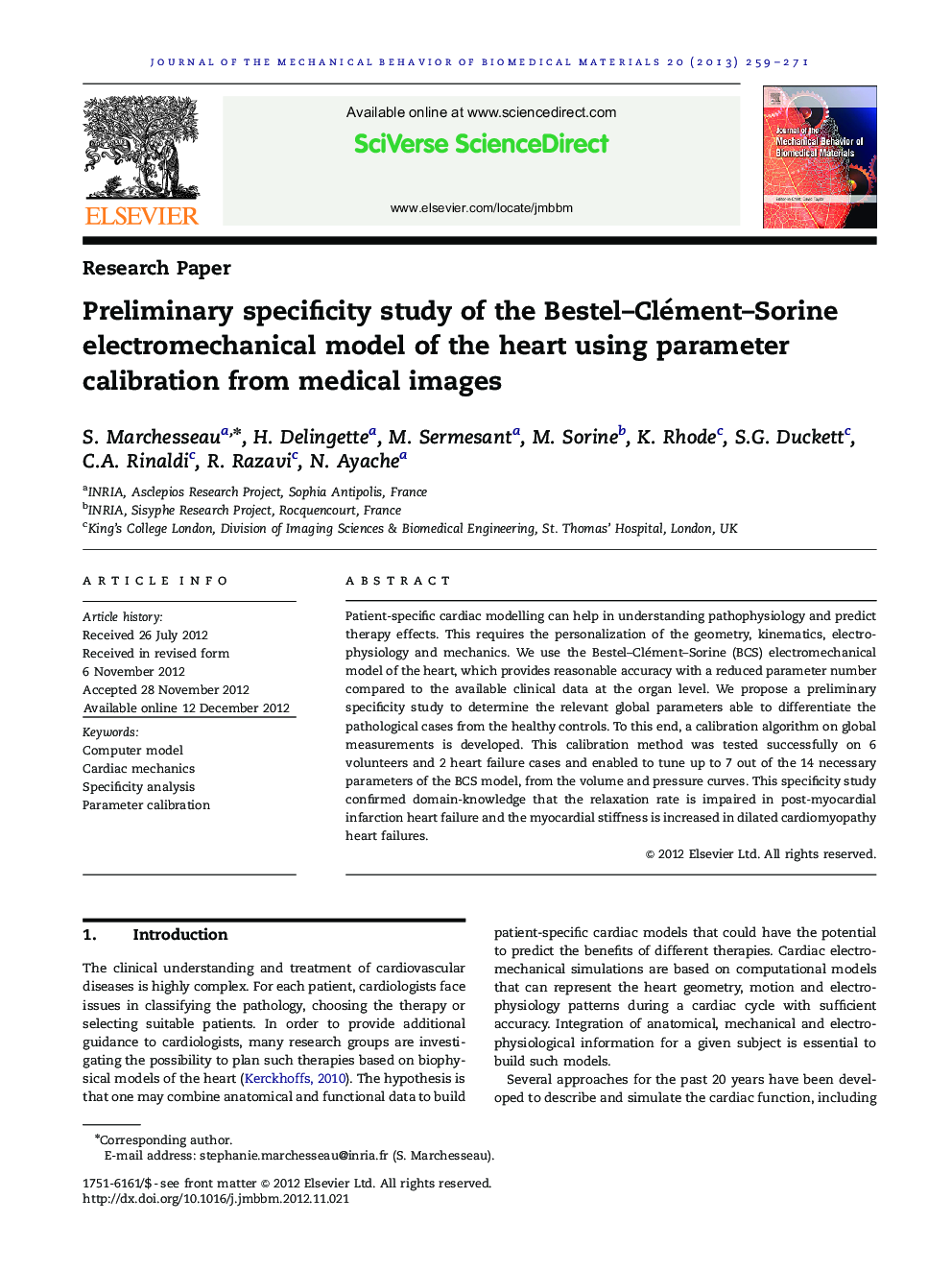| Article ID | Journal | Published Year | Pages | File Type |
|---|---|---|---|---|
| 810919 | Journal of the Mechanical Behavior of Biomedical Materials | 2013 | 13 Pages |
Patient-specific cardiac modelling can help in understanding pathophysiology and predict therapy effects. This requires the personalization of the geometry, kinematics, electrophysiology and mechanics. We use the Bestel–Clément–Sorine (BCS) electromechanical model of the heart, which provides reasonable accuracy with a reduced parameter number compared to the available clinical data at the organ level. We propose a preliminary specificity study to determine the relevant global parameters able to differentiate the pathological cases from the healthy controls. To this end, a calibration algorithm on global measurements is developed. This calibration method was tested successfully on 6 volunteers and 2 heart failure cases and enabled to tune up to 7 out of the 14 necessary parameters of the BCS model, from the volume and pressure curves. This specificity study confirmed domain-knowledge that the relaxation rate is impaired in post-myocardial infarction heart failure and the myocardial stiffness is increased in dilated cardiomyopathy heart failures.
Graphical abstractFigure optionsDownload full-size imageDownload high-quality image (283 K)Download as PowerPoint slideHighlights► Calibration of the Bestel–Clément–Sorine electromechanical model of the Heart. ► Global parameter estimation from volumes and pressures using the Unscented Transform. ► Preliminary specificity study on pathological cases versus healthy controls. ► Specific parameter detection in agreement with medical knowledge.
